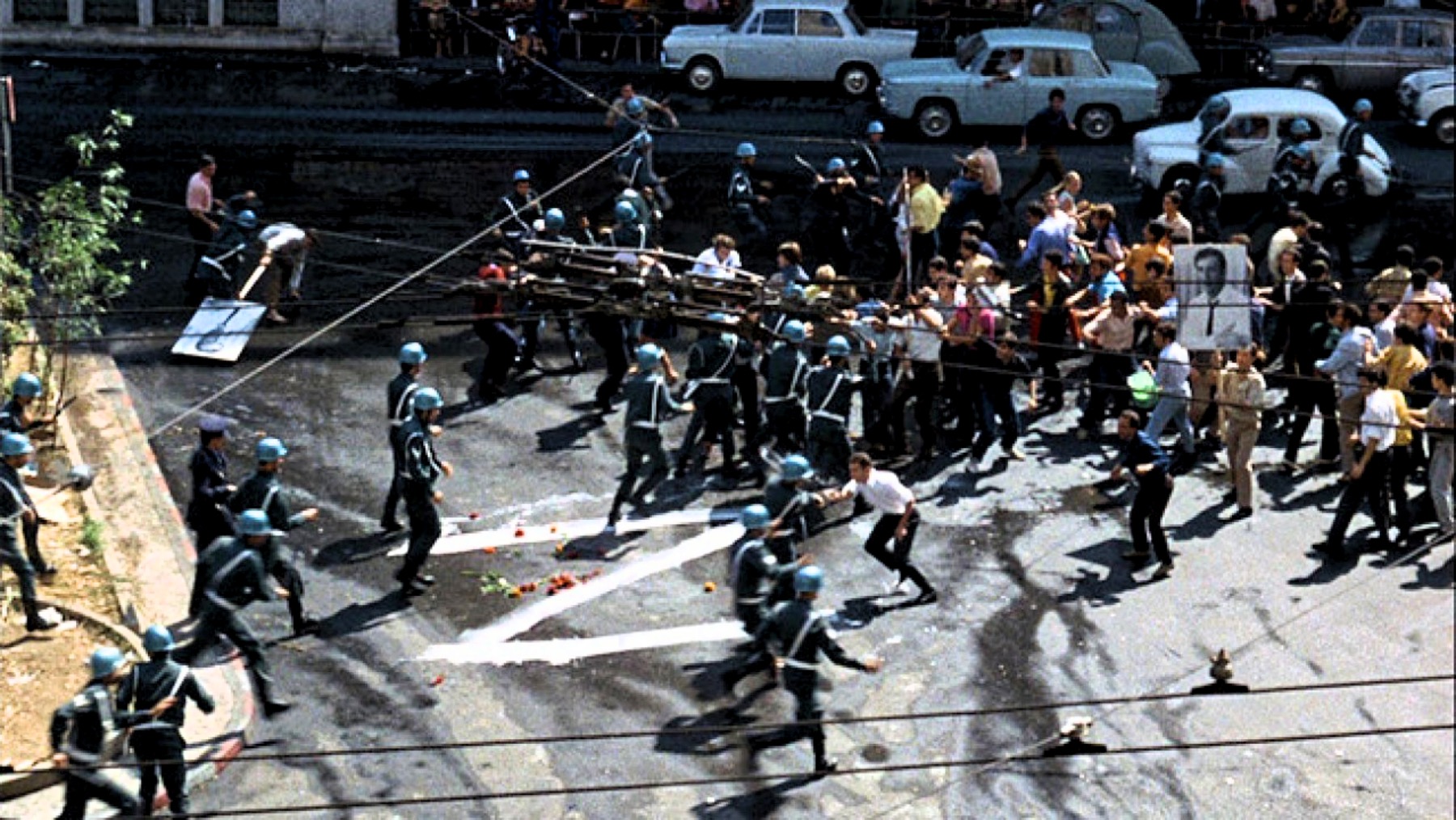
- Golden Globe Awards
1970: “Z,” Meryl Streep and Freedom of the Press

Defying George Orwell’s famous quote that, “In our age, there is no such thing as ‘keeping out of politics,’” the journalists of the Hollywood Foreign Press Association have always done their best to stay out of it.
Only three connection points to politics have been acceptable: not overtly shying away from awarding films or TV shows with a strong political vision, such as Costa-Gavras’s ZMeryl Streep’s forceful 2017 Cecil B. deMille Award acceptance speech; and strongly supporting the freedom of the press with our charities and public activities.
In 1970, the winner in the Best Foreign Film – Foreign Language category was Z, one of the most powerful political films in movie history. Its opening credits immediately let you know, “Any similarity to real persons and events is not coincidental.”
The film is a thinly-fictionalized account of the Greek opposition movement led by Grigoris Lambrakis, who was assassinated in 1963 by the ruling right-wing junta. Hence the film’s title, which provides a nod to a popular Greek protest slogan (in Greek: Ζει) meaning “he lives,” in reference to Lambrakis.
Its story focuses on an examining magistrate (Jean-Louis Trintignant) who uncovers criminal evidence sufficient enough to indict high-ranking military police officers who committed the murder. The work of a photojournalist (played by the film’s co-producer Jacques Perrin) helps to uncover the truth.
Exactly this kind of achievement by the press was at the center of Streep’s memorable acceptance speech at the Golden Globe celebration in 2017.
In her remarks, she addressed the HFPA directly: “You… belong to the most vilified segments in American society right now. Think about it: Hollywood. Foreigners. Press.” Then she added: “We need the principled press to hold power to account… That’s why our founders enshrined the press, and its freedoms, in our Constitution.”
And, finally, she called for our support: “Join me in supporting the Committee to Protect Journalists. Because we’re going to need them going forward. And they’ll need us to safeguard the truth.”
We joined her. The membership voted to expand our philanthropy to include journalism. The Committee to Protect Journalists, the International Consortium of Investigative Journalists, and the Reporters Committee for Freedom of the Press all received multimillion-dollar grants from the HFPA.
Under the leadership of our then President Meher Tatna, and in collaboration with the Los Angeles Times, we organized L.A. Press Freedom Week (PFW), to draw public attention to the vital work of the three aforementioned organizations, which share a common goal: to allow journalists to work without threats, coercion, intimidation, incarceration, torture, or even murder.
Did we commit a cardinal sin by not “keeping out of politics”?
Not if one considers the response from our media colleagues: Various satellite events grew around the three marquee events of PFW, which included other media organizations like FilmAid/Internews, The Hollywood Reporter, NBC News, Los Angeles Times, PEN America, KCRW, KPCC, and LAist.